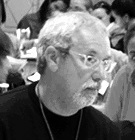 |
| Sam Piha |
In fact, the California Department of Education - Expanded Learning Division (EXLD) has pulled together an ongoing SEL Planning Team. This Planning Team will offer recommendations on how best to integrate SEL into the System of Support for Expanded Learning, deepen SEL opportunities for students, and foster alignment around SEL strategies with the school day.
But how do we take into account cultural differences in framing SEL? Are SEL concepts culturally bound? We believe that these are important questions to explore.
In their support of California's CORE Districts and the integration of SEL, the Partnership for Children and Youth (PCY) amended their work on SEL concepts.
 |
| Katie Brackenridge |
Below are two resources to explore these issues. How would you answer the questions around SEL and cultural differences?
- A brief video presentation, “The Limits and Possibilities of Social Emotional Learning” featuring Dr. Shawn Ginwright from San Francisco State University.
- An article entitled, Why Don’t Students Take Social-Emotional Learning Home? by Vicki Zakrzewski from the Greater Good Science Center at UC Berkeley.
 |
| Photo Credit: Hemera, via the Greater Good Science Center |
You can read other blogs by the LIAS project by going to:





No comments:
Post a Comment